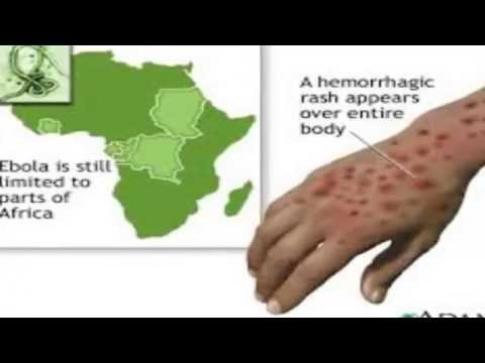WHO sounds alarm over W Africa Ebola

The head of the World Health Organization and leaders of West African nations affected by the Ebola outbreak are to announce a joint $100m (£59m; 75m euro) response plan.
The head of the World Health Organization and leaders of West African nations affected by the Ebola outbreak are to announce a joint $100m (£59m; 75m euro) response plan.
They will meet in Guinea on Friday to launch the initiative aimed at tackling a virus which has claimed 729 lives.
Sierra Leone's president has declared a public health emergency over the outbreak after 233 people died there.
Ebola spreads through human contact with a sufferer's bodily fluids.
Initial flu-like symptoms can lead to external haemorrhaging from areas like eyes and gums, and internal bleeding which can lead to organ failure.
Ebola kills up to 90% of those infected, with patients having a better chance of survival if they receive early treatment.
'A new level'
WHO Director General Margaret Chan will meet West African presidents in the Guinean capital Conakry.
"The scale of the Ebola outbreak, and the persistent threat it poses, requires WHO and Guinea, Liberia and Sierra Leone to take the response to a new level, and this will require increased resources, in-country medical expertise, regional preparedness and coordination," she said in a statement released on the WHO website on Thursday.
"The countries have identified what they need, and WHO is reaching out to the international community to drive the response plan forward."
Key elements of the WHO's new plan are:
Stopping transmission in the affected countries through "scaling up effective, evidence-based outbreak control measures"
Preventing the spread of Ebola to "the neighbouring at-risk countries through strengthening epidemic preparedness and response measures"
The WHO says that the scale of the ongoing outbreak is "unprecedented", with about 1,323 confirmed and suspected cases reported in Guinea, Liberia and Sierra Leone since March 2014.
It says that improving prevention, detecting and reporting suspected cases, referring people infected with the disease for medical care, as well as psychosocial support, are of paramount importance in battling the illness.
The WHO is also deploying two survivors of the outbreak in Guinea as informal Ebola ambassadors, working with community groups to show that the disease can be prevented if people take recommended precautions. / BBC




 del.icio.us
del.icio.us Digg
Digg

Post your comment